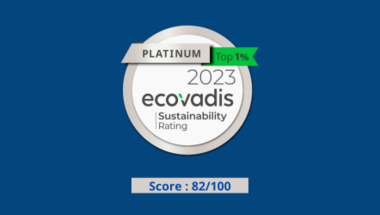GELTRAP™ is an environmentally friendly technology fully in line with SEPPIC's sustainable development strategy.
GELTRAP™ is a concept that is different from an oil-in-water or water-in-oil emulsion. It is a gel-in-oil emulsion with a high water content above 80%. Its gel phase is formulated using a ready-to-use thickening polymer such as SEPIPLUS™ 400 or SEPINOV™ EMT 10 and the emulsion itself is stabilized by a liquid emulsifier known as EASYNOV™.
Its properties make it a concept like no other on the market: a skin feel that conveys a sense of well-being, improved emollience, water resistance and considerable energy savings compared to a traditional emulsion.
A technology patented by SEPPIC, GELTRAP™ is formulated cold, with low or high shear. As a result, compared with the hot manufactured oil-in-water emulsion, the production of 5 kg of GELTRAP with low shear saves up to 98% energy and 78% manufacturing time. This is equivalent to a 4.6 kg reduction in CO2 emissions*. The impact on the environment is also significantly reduced compared with a cold manufactured water-in-oil emulsion: GELTRAP™ saves up to 74% energy and 64% manufacturing time.
Juanshu SHEN, Emulsifiers Product Manager, says: "GELTRAP™ offers a fresh, soft touch and a feeling of comfort and well-being for the skin. It is an eco-concept that meets the needs of our customers who are increasingly looking for environmentally friendly, multipurpose solutions. It is suitable for all kinds of applications!"
*The average in the twenty-seven countries of the European Union (339 g CO2/kWh), according to Chiffres clés du climat France et Monde édition 2013, a report published by www.statistiques.developpement-durable.gouv.fr. In the USA and China, CO2/kWh emissions are even higher than in Europe because much more electricity is produced using fossil fuels, in particular coal. 4.6 kg CO2 is equivalent to a 12- to 15-mile journey in a small gas engine car.




